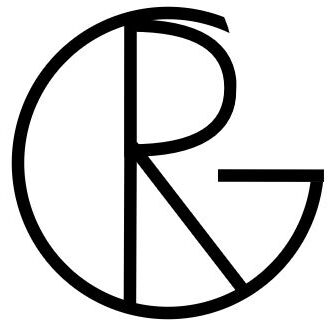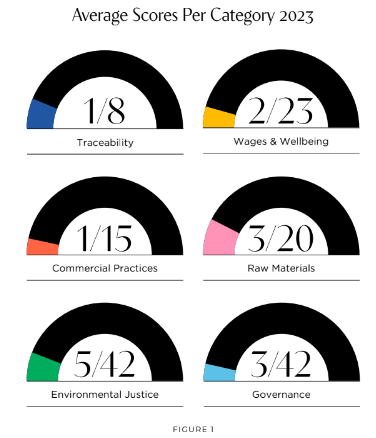In a world where fast fashion is dominating, and overconsumption is at an all-time high, the environmental and especially social costs are often overlooked. The fashion industry, notorious for its detrimental impact on the planet, contributes to excessive waste and exploits labor.
Currently, over 93% of fashion brands fail to pay their workers fair wages. Shockingly, of the 70 million garment workers worldwide, over 80% are women. These women often endure unfair and unsafe working conditions, perpetuating a cycle of poverty and gender-based violence. Moreover, they bear the disproportionate impact of environmental disasters exacerbated by climate change, further accelerated by the fashion industry.
More on Remake
Founded in 2015 by CEO Ayesha Barenblat, Remake aims to end poverty wages, unsafe working conditions, and gender-based violence in the fashion industry. With an extensive international network comprising citizens, press, legislators, and union leaders, Remake advocates for meaningful change within the fashion industry.
Remake’s work focuses on four key pillars: education, accountability, radical collaboration, and intersectionality.
Through education, Remake raises awareness about the harmful impact of the fashion industry and offers sustainable solutions to combat misinformation and promote transparency. In terms of accountability, Remake pushes for legislative action, legal cases, and commitments from brands to ensure they uphold ethical standards. Recognizing the need for systemic change, Remake fosters collaboration among industry stakeholders and policymakers.
Lastly, Remake emphasizes the interconnectedness of social and environmental justice, advocating for a holistic approach to addressing global challenges.
Remake’s Fashion Accountability Report
One of Remake’s notable initiatives is the Accountability Report. You may have seen this report before, as some of the findings went viral on several social media platforms. For instance, the celebrity fashion brand Fenty X Savage by Rihanna scored lower than the ultra-fast fashion brand SheIn, prompting important conversations about accountability and sustainability in fashion.
In the Fashion Accountability Report the organization evaluates the largest fashion companies—with an annual revenue over USD 100 million— based on 6 key areas namely; traceability, wages and well-being, commercial practices, environmental justice, and governance.
While Remake previously assessed smaller brands, the focus has shifted to holding larger brands accountable due to their significant impact. Of course, as they accurately mention on their website, this does not absolve smaller and medium-sized (SME) fashion companies of their responsibility towards sustainability and ethics.
Remake’s Fashion Accountability Report 2024: Highlights
In its latest accountability report for 2024, Remake evaluated 52 fashion brands across 88 individual metrics spanning six key areas. Similar to the previous year, the average score attained by fashion brands was a mere 14 points out of a possible total of 150. In the figure below, you can see how these points were divided across the 6 key areas.
Key Findings
Among the notable findings, the H&M Group (including brands like Arket, COS, H&M, Monki, Weekday, and & Other Stories) surprisingly secured the second position with a total score of 37 points. This result is rather interesting as H&M Group is often seen as the villain in the fashion industry due to their practices. However, despite this the company has put a lot of effort in improving its sustainability practices by reducing emissions, water usage, and chemicals. Nevertheless, it continues to operate within a global economic system that incentivizes overproduction, pollution, and exploitation, as highlighted by Remake. This underscores the systemic challenges inherent in the fashion industry’s business model, necessitating radical reform.
Ethical considerations remain a significant area of concern, with little observable progress in promoting diversity, equity, and inclusion initiatives. Furthermore, companies have shown limited regard for workers’ well-being, as evidenced by only two companies—Cotopaxi and Hanesbrands Inc.—disclosing the percentage of workers receiving a living wage.
Despite the frequent mention of circularity in discussions about sustainability in the fashion industry, Remake found that only a fraction of fashion companies are actively exploring resale, repair, and rental services to extend the lifecycle of garments. Additionally, the report highlights a lack of commitment to reducing production volume, a crucial factor in waste reduction and sustainability. This shortfall in circularity initiatives underscores the urgent need for the fashion industry to intensify efforts and embrace a more comprehensive approach to sustainability and circular principles.
Once again, Remake’s Fashion Accountability Report exposes the disappointing lack of progress across the six key areas within the fashion industry. The substantial disparities within the industry’s business model are laid bare, underscoring the urgent need for structural change in its approach to sustainability and ethics. The report serves as a stark reminder of the considerable distance yet to be covered by the fashion industry on its journey toward true sustainability.
Interested in reading Remake’s Fashion Accountability Report? You can download it here.
Sources
All pictures link to their source, and all credits go to the rightful owners.
You can find the header picture on Canva.
Image Credit: Emma Rahmani






